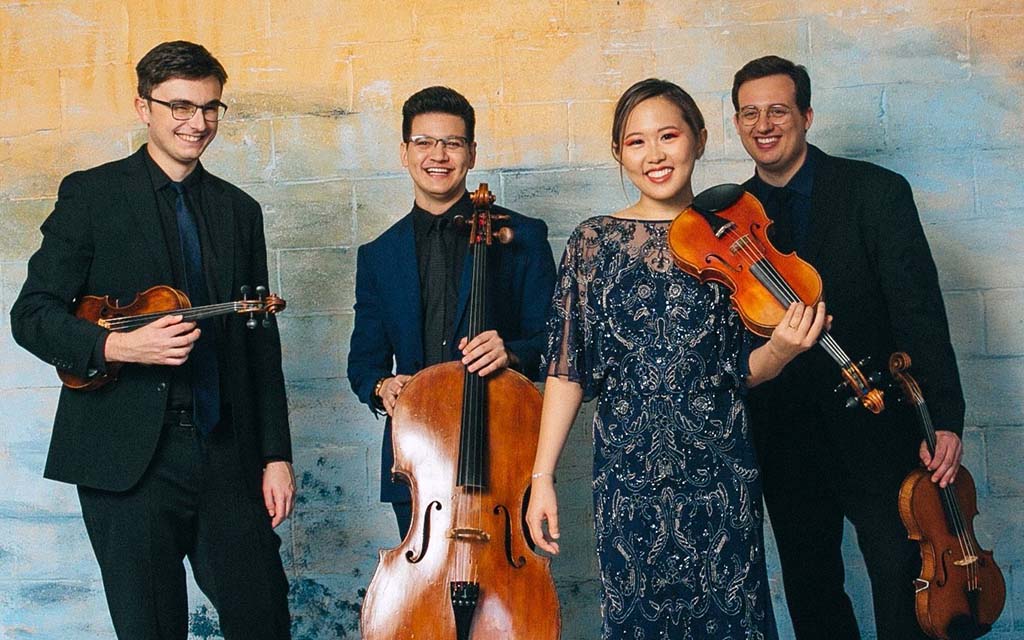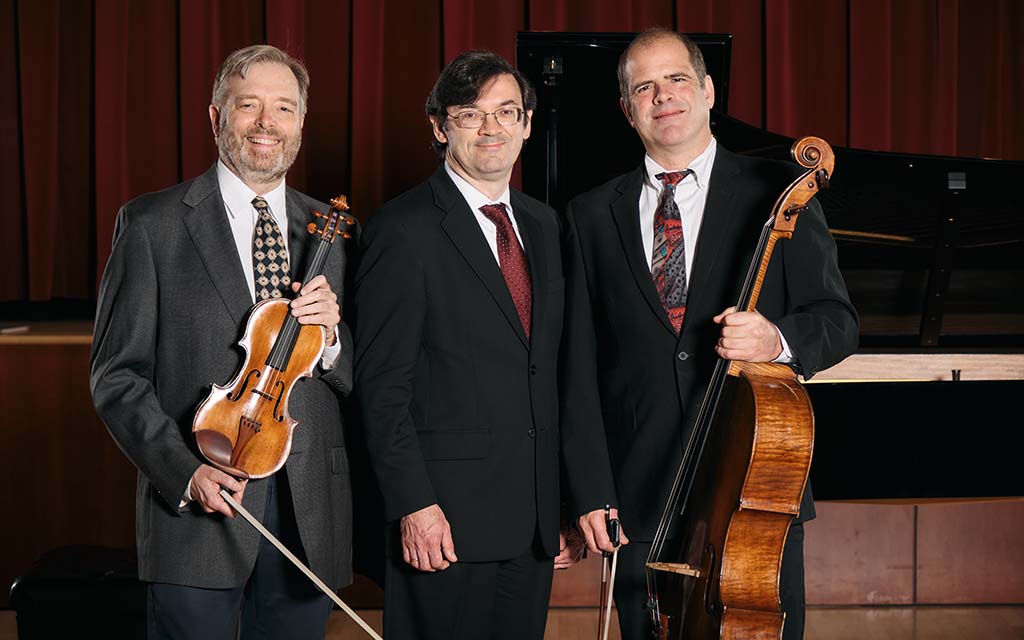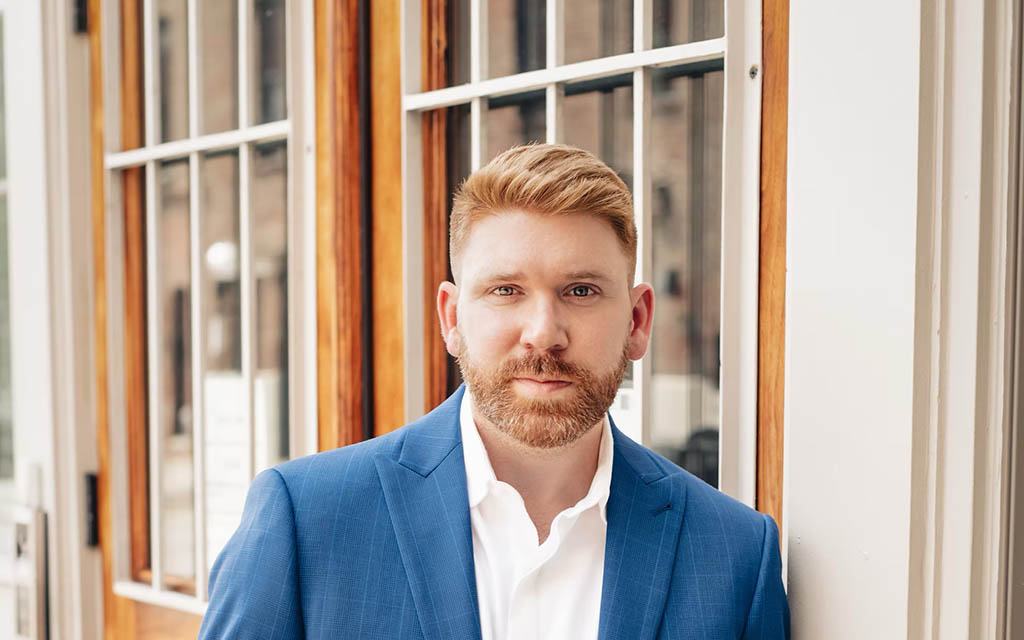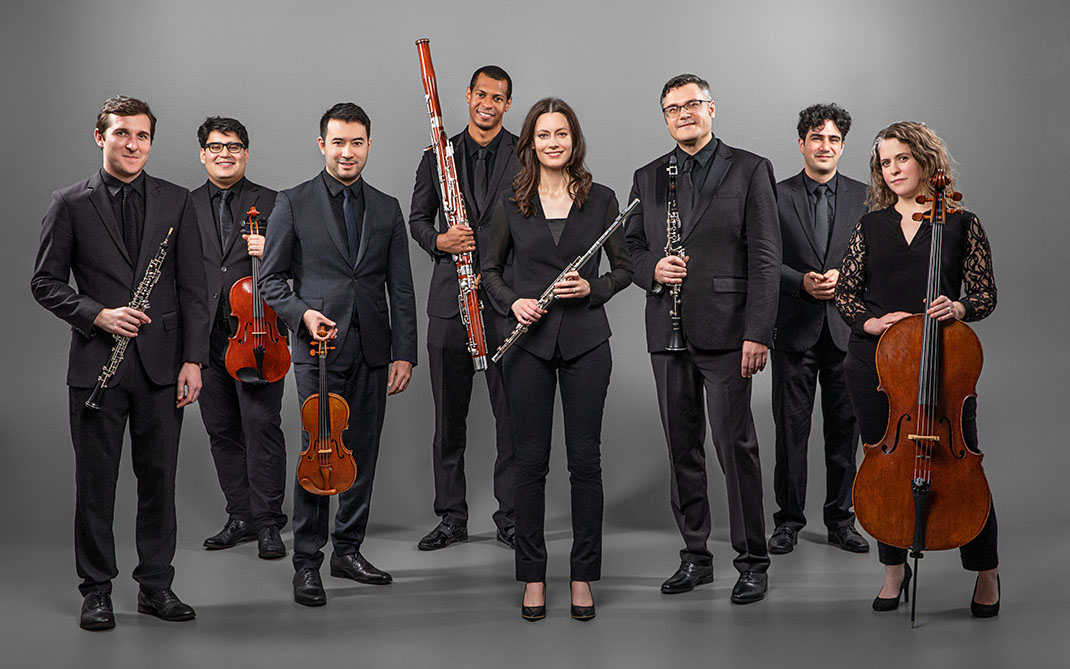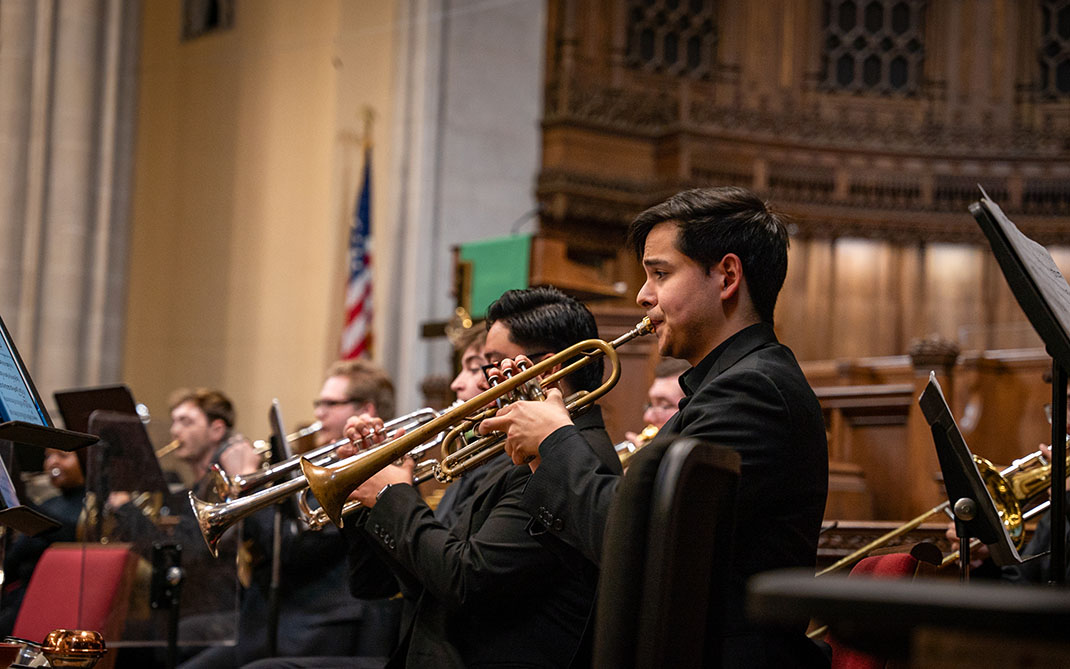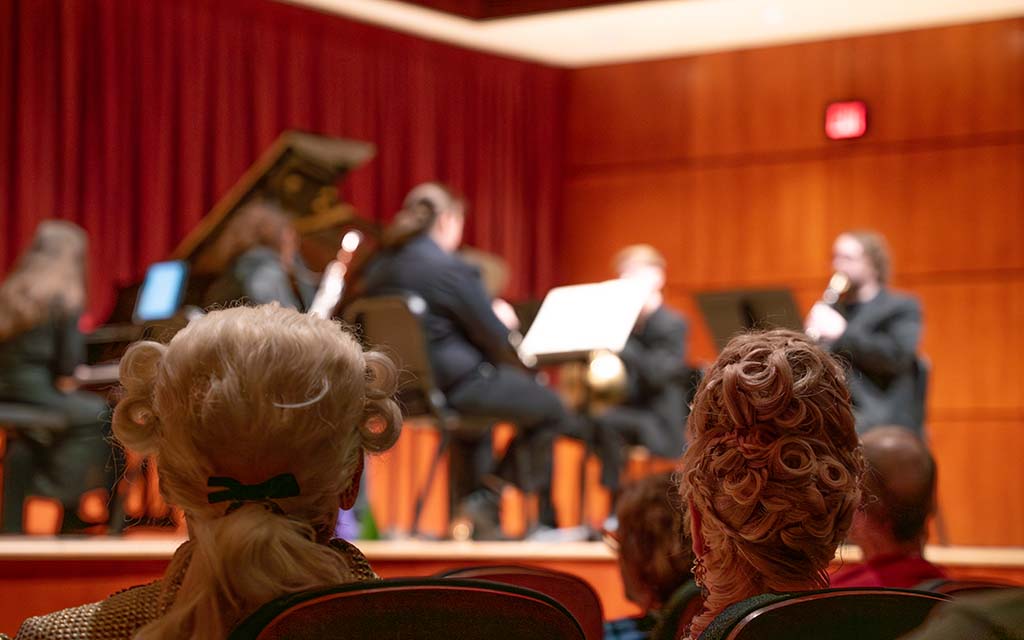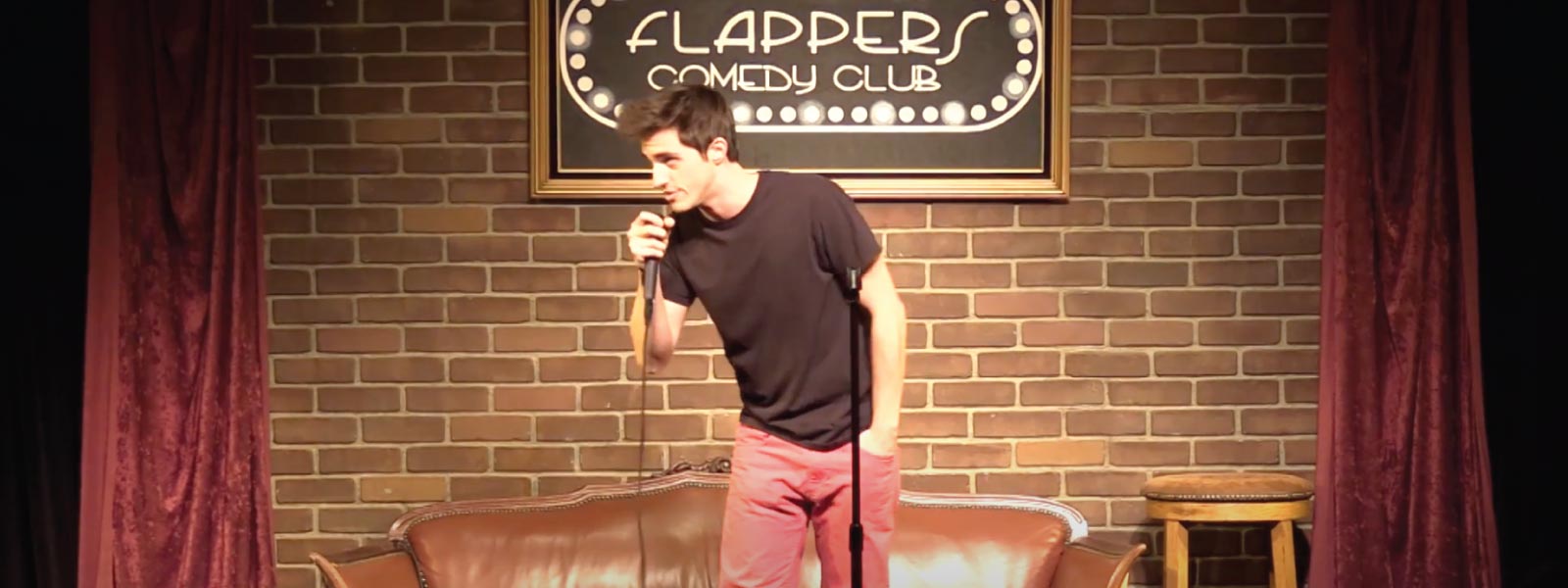Drama alumnus Rob Morris on comedy, podcasts and DWTS
Producer, writer and curator Rob Morris has learned what it means to be versatile in the entertainment industry since graduating less than a decade ago from the School of Drama. Currently a producer on Season 29 of “Dancing with the Stars,” Morris also spends his time at his comedy venue in his hometown of Austin, Texas. The Romo Room focuses on building skills for aspiring comic.
Morris forged his own path at UNCSA, starting as a lighting design student in the School of Design & Production, then transferring to the School of Drama as an acting student before finally completing the Drama directing program. An exceptionally proud Pickle, Morris launched the “At the Elephants” podcast in 2014. With more than 60 episodes, the podcast features different UNCSA alumni, guest artists and faculty members.
We caught up with Morris to learn more about his time at UNCSA, what inspires him and how his career has evolved since graduation.
Tell us about any current and/or upcoming projects you’re working on:
I’m currently in Los Angeles producing the 29th season of "Dancing With The Stars." This is my sixth season with the show and, as you can imagine, we are adapting our production methods and policies in order to keep the show going through the COVID era.
I also opened a comedy venue in Austin, Texas, that has an attached podcast network—both called The Romo Room. It is a community theater for open-mic stand up comics that hosts headliners regularly, but exists primarily to grow the local community by providing ample stage time as well as a digital platform on which comics can create.
Both comedy clubs and bar shows are essential to the industry, but neither offer the kind of time an artist needs to get better. You need regular access to stage time and audience feedback. The Romo Room seeks to provide as much of that as possible.
You have been working on “Dancing with the Stars” for several seasons. Do you have any ‘stars’ that you have particularly liked working with or who have been memorable?
Six seasons on a show I never saw an episode of before I worked on it! It is my absolute favorite job I’ve ever had. As far as meeting and working with the stars, it has been a very surreal dream come true. I once told someone that I “didn’t want to be famous, I just wanted to get paid to hang out with famous people.” At this point, I have gotten about as close to that dream as I will.
Sometimes, celebrities are exactly who you thought they were, but more often than not, they surprise you. Some of the people I have laughed the hardest at on television have been the least entertaining people to work with day to day, maybe because they are tired of being ‘on,’ or maybe because in their best work they had great writers, directors and editors helping them make me laugh.
Meanwhile, Sean Spicer and Sarah Palin were incredibly kind and easy to work with. “Don’t meet your heroes” can be very real. “Meet your villains” should be a saying, too, because some people I was prepared to grit my teeth with turned out to be great in many ways. The short answer to your question is: Mr. T & Ronda Rousey. I like feeling protected.
Why did you choose UNCSA?
Brandon Tyler Harris (Drama ’10) deserves all the credit for that one. He was my best friend growing up. I wouldn’t even know about the school without him. Initially, I wasn’t going to do the college thing. I was an exceptionally bad student from grades 5-13 (less than two semesters at community college), and more school was the last thing I wanted. He explained that I could come to then-NCSA and take only non-academic classes. The College Arts Diploma program was perfect for me.
Fourteen years of schooling had me convinced I had 'wasted my potential.' UNCSA showed me that I had not even begun to explore it.
Rob Morris
Fourteen years of schooling had me convinced I had “wasted my potential.” UNCSA showed me that I had not even begun to explore it.
Editor’s Note: UNCSA currently offers B.F.A., B.M., M.F.A. and M.M. degree programs, along with a Professional Artist’s Certificate in Music and a High School Diploma.
Advice for current or prospective students:
Develop the skills of high hopes and low expectations. Learn to hope for the sky but expect the crash, over and over. It's easier said than done for sure, but to me it’s the recipe for happiness. Carl Forsman once told our class “think up the million-dollar idea and find a way to do it on a dime.” To me, this is all of life. Dream the biggest dream you can, but know that dreams are hard and require work and skill and luck.
You have to learn how to fail with grace—especially if you’re one of those type-A perfectionist people like I can be. Learn to constantly redefine what happiness is to you. Learn what it means to work in service of something, even if you’re at the top of the pyramid or in the spotlight. Sit down. Be humble.
Carl Forsman once told our class “think up the million-dollar idea and find a way to do it on a dime.” To me, this is all of life.
Rob Morris
What is a highlight of your career so far?
My first paying industry job after school was at Comedy Central in New York. I wrote a parody of “Twas The Night Before Christmas” that was read by Larry The Cable Guy on air for a promo supporting the release of “A Madea Christmas.” I know. Despite how it sounds, I was floored by this. It was the first time I wrote a joke that made it on television.
I loved film and television, and when I left school I knew I wanted to work in that side of the industry. But because I didn’t go to film school, I felt insecure about applying for jobs. When I landed the Comedy Central gig, it was mostly an executive assistant/office PA job. Occasionally, I would get to write something and submit it to the studios. Lionsgate picked my stupid joke and told Larry to say it on camera. I couldn’t believe it.
What was your inspiration for starting the “At the Elephants” podcast?
When I was at school, Robert Beseda and later Carl Forsman would host talk backs with alumni and guests who visited campus. We would get our own version of “Inside the Actor’s Studio.” While it was great to hear from Peter Hedges, Dane DeHaan & Anna Wood and Mandy Patinkin; it was a forum that lacked a certain intimacy and could impose a censorship on the speaker that may not exist if you could talk to them one-on-one.
In 2014, podcasts were still fairly new and mostly true crime, self-help and conspiracy theories. I built a makeshift studio under my loft bed and started pulling in friends from school to build a sort of “This American Life” meets “WTF,” but focusing on UNCSA. My favorite part of school was directing. My favorite part of directing was talking to the actors and designers about what their characters and the play meant to them. So, being the one to catalogue the stories of the alumni and faculty felt like a mantle I was perfect for. I’ve recorded dozens of episodes in New York, North Carolina, Texas and California since starting it... and I don’t plan on stopping that show, even if work sometimes requires me to take big breaks from producing it.
What has been your biggest takeaway from working on the series?
Joe Mills had me in his Interviewing class once, and asked me if I had any stock questions on “At the Elephants.” I have just one: “Where are you from?” Joe laughed and explained he had already told his students not to ask that boring question. But we totally understood each other. He meant filling a blank with a city and state doesn’t fill in who a person is. He’s right. His episode of “At the Elephants” is excellent.
The reason I always start with that question is because I already know where and when the “second act” of their lives took place. That’s why they are on the show. I am sincerely interested in as much of their “full story” as possible. We actually don’t talk about Act II much. I am far more interested in how they got to school and what they did when they left. I didn’t know that’s how the show would end up, but I’m glad it did and listeners tell me they love that.
How do you apply what you learned at UNCSA in your career?
I think about it all the time. When my jaw tightens out of fear, I hear Mary Irwin telling me to breathe. When I create a new logo for a podcast or a show poster for a standup show, I hear Pam Griffin telling me that my text looks “stuck on.” Doing “At the Elephants” keeps it fresh but overall, the school made a huge impression on my skill set. It is where I honed my craft, so anytime my craft is employed, all of the lessons and ideas and vocabulary come with it. Irwin used to say, I believe quoting the late great Kristen Linklater, “the work, works.”
Talk a little about some challenges you've encountered in your career and how you've overcome them:
One challenge that we all face in the arts/entertainment industry is the choice between having a staff position and being a freelancer. You’ll see a lot of your classmates and colleagues grow tired and frustrated or simply find themselves not making enough money as a gig worker. Sometimes that leads to a departure from the industry altogether in the name of stability and security. I have always felt secure in the idea that one way or another I will find a way to create and produce, because that's what makes me truly happy.
What some people don't realize is that the security and stability that they seek from a staff job can be found within arts and entertainment. You don’t have to be freelance to be an artist.
Rob Morris
What some people don't realize is that the security and stability that they seek from a staff job can be found within arts and entertainment. You don’t have to be freelance to be an artist. Sometimes taking a staff job at an agency or network or production company for a year or two is a great way to build a network, save money and feel like you can breathe easy without having to constantly find a new job. That isn’t for everyone, but my point is just because you don’t want to wait tables and hustle auditions, doesn’t mean you have to be an accountant or teach grade school (both noble professions). There are other options.
Post-graduation, you did a lot of work in stand-up comedy; what led you to that, and what were your biggest takeaways from that kind of performance?
I have been a massive standup fan my entire life. It may be my favorite art form. It was a family thing in my youth and often my main form of escapism as a teenager. The way some people I know talk about being 13 and finding Rage Against The Machine or N.W.A. is how I felt about David Cross and George Carlin. They put words to my outrage in a way that made it possible to laugh through it. Comics had a way of giving me that catharsis.
I actually put off performing myself for a long time out of fear. It is the scariest mainstream artform for sure. When I started The Romo Room, I wanted a place where new comics could feel welcome and supported—you still have to earn our laughs and respect for your work, sure. But you can come back tomorrow even if you fail today, because we all understand that’s the only way to do it.
Get the best news, performance and alumni stories from UNCSA.
SUBSCRIBE TO OUR NEWSLETTERS
October 26, 2020
